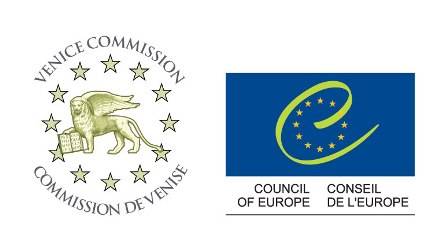Probably one of the most underrated acts of the current president, cabinet of ministers, and sitting Rada, was the accommodation of almost all Venice Commission “recommendations” with regard to the constitutional amendments that facilitate “decentralisation“.
Time will now tell whether the Constitutional Court will have issues with the proposed “decentralisation” amendments, and if they deem all satisfactory, whether the 300 (plus) votes required for a constitution changing majority can be reached within the Rada ranks when the matter is placed before them once more, as stated here previously.
However, the constructive attitude of the Ukrainian political class was not unnoticed.
“I very much welcome that the Constitutional Commission of Ukraine approved on Friday draft amendments to the Constitution regarding decentralisation. The text approved integrates most of the recommendations made by the Venice Commission and I would like to thank the President of the Constitutional Commission and Speaker of the Verkhovna Rada, Mr Volodymyr Groysman, for the excellent co-operation with the Venice Commission and congratulate him on the results of this co-operation.
Decentralisation is one of the key reforms required for the democratic development of the country in line with the aspirations of the people expressed during the revolution of dignity. The speedy adoption of the text by the Verkhovna Rada is now very important with a view to the local elections, which will take place in October, and the continuing negotiations in the framework of the Minsk process.
The Venice Commission stands ready to provide its assistance for further reforms, in particular the constitutional amendments concerning the judiciary.” - Gianni Buquicchio
Very good - or at least good, for whilst the Venice Commission may well have known the detail of proposed constitutional amendments designed to achieve “decentralisation”, the constituents of Ukraine were almost entirely in the dark, notwithstanding very broad brush-stroke remarks in the media that could have meant almost anything.
 Sadly, the same blanket lack of knowledge relating to proposed constitutional amendments in the public realm exists when it comes to providing a pathway for judicial and prosecutors reforms.
Sadly, the same blanket lack of knowledge relating to proposed constitutional amendments in the public realm exists when it comes to providing a pathway for judicial and prosecutors reforms.
However, the Venice Commission has released some preliminary opinions upon the matter, per the proposed constitutional amendments it has been sent. Thus there is some insight into the proposed constitutional changes.
The major issues can be summarised as follows:
“The proposed amendments are a generally positive text which deserves to be supported. The amendments are well drafted. Their adoption would be an important step forward towards the establishment of a truly independent judicial system in Ukraine. The Venice Commission welcomes in particular:
- The removal of the power of the Verkhovna Rada to appoint the judges;
- The abolition of probationary periods for junior judges;
- The abolition of the “breach of oath” as a ground for dismissal of the judges;
- The reform of the Public Prosecutor’s Office, the guarantees for its independence (notably the removal of the power of the Verkhovna Rada to express no confidence in the Prosecutor General) and the removal of its non-prosecutorial supervisory powers.
The text, however, still presents some shortcomings, especially with respect to the powers of the main State organs in this field. If not corrected, these shortcomings might create a new danger of politicisation of the judiciary and perpetuate the problems of the current system. In this respect, the Venice Commission formulates the following main recommendations:
- While the ceremonial role of the President to appoint judges seems well justified, this is not the case for his power to dismiss judges, which should be removed from the text;
- In addition, not only the President, but also the Verkhovna Rada should have a role in the election/ appointment of a limited number of members of the High Judicial Council.”
Do read the entire text of the Venice Commission preliminary “opinion”. There is some nuanced wordsmithery in connection to a number of much smaller issues - but issues nonetheless - that should also be accommodated by the Ukrainian leadership.
Hopefully the same political will found to accommodate the Venice Commission recommendations for the “decentralisation” amendments, will again be found with regard to the Venice Commission recommendations (both major and minor) to come relating to the judiciary and prosecutors.
Unfortunately, it seems unlikely that the Ukrainian leadership will enlighten the electorate with details of proposed constitutional amendments (and their ramifications), and thus only the reasonably constant monitoring of the Venice Commission website is likely to provide clues to the detailed proposals made.